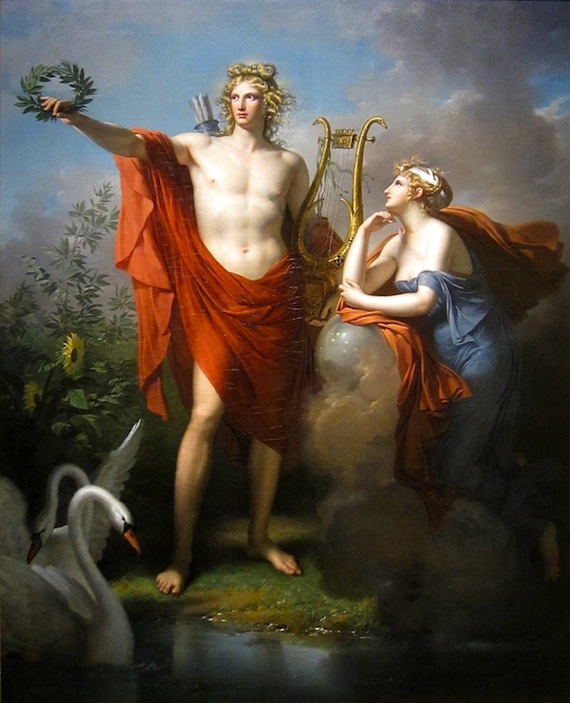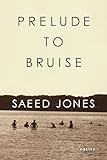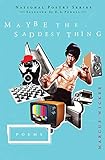
Novels might bore, and short stories can frustrate, but poetry is the only genre of literature that elicits consistent hate. People hate poetry because it is obscure, elitist, vague, complex, somber, trite, ornate, pretentious, out-of-touch, and dated.
William Shakespeare is blamed. Secondary school teachers are blamed. Contemporary poets are blamed. Poet voice is blamed. Tumblr is blamed. Greeting cards are blamed. James Franco is blamed.
Perhaps it is the way we talk about poetry that is to blame — we being those who have already been converted, who read and write and share poetry. Love is a private emotion; it risks withering when shown public light. We who love poetry think it will save the world. Why must it save the world? It should be enough to save a single minute. If a poem pauses someone, that is enough.
This list is an olive branch to the poetry skeptics. Prose is great for fiction, essays, and belabored introductions to lists, but poetry has its own place in this world. Poetry is the grand language of ceremony and spectacle, as well as the whispered language of secrets and fears. Many wonderful poems exist, but the following selections will appeal to readers of prose: work that is approachable, funny, smart, but still verse. Take a chance on these 10 poems.
 1. “A Perfect Mess” by Mary Karr (Sinners Welcome)
1. “A Perfect Mess” by Mary Karr (Sinners Welcome)
“It’s not law but the sprawl / of our separate wills that keeps us all flowing.” Our world is a perfect mess: just when you think things could not get any worse, small miracles right the course for a few important moments. Poetry is a snapshot form, and Karr’s poem captures the feel of the city, the world unraveling in a million directions. The narrator watches the “unprecedented gall” of piano movers “shoving a roped-up baby grand / up Ninth Avenue before a thunderstorm.” Those movers “knew what was coming, / the instrument white lacquered, the sky bulging black / as a bad water balloon and in one pinprick instant / it burst.” They are saved by unlikely heroines. “A Perfect Mess” ends on an ellipsis, because, she says, “You only unplug from [the city], the current never stops …”
 2. “Sir Isaac Newton’s First Law of Motion” by Matthew Olzmann (Mezzanines)
2. “Sir Isaac Newton’s First Law of Motion” by Matthew Olzmann (Mezzanines)
I might have chosen Olzmann’s hilarious and sweet “Mountain Dew Commercial Disguised as a Love Poem,” but there’s something extra special about his Isaac Newton poem. It has been said so often that poetry makes the ordinary extraordinary, and yet that transformation is often a romantic one (think a farmer standing in front of a field moved by wind, or someone looking down at Earth from an airplane). Yet equally appealing to me is how a great poet can make you appreciate stasis and even boredom. “Matthew Olzmann / is an object at rest, and will remain at rest, / reclining on the couch while drinking Guinness / and watching football.” I can’t trust a poet without a sense of humor. Olzmann has my trust, so I’m willing to follow his lines everywhere. Next time someone calls you lazy, share this poem and proclaim your leisure art.
 3. “Blue Prelude” by Saeed Jones (Prelude to Bruise)
3. “Blue Prelude” by Saeed Jones (Prelude to Bruise)
If Jones wrote a two-line poem it would still hit me with the power of an epic. “Last night, the ceiling above me / ached with dance.” What brings me back to poetry are those single-word decisions: “ached,” how that one note pulses through the entire line. We’ve all known the feeling of longing, of being so close to joy and yet so far away, and Jones follows the emotion from that upstairs room to the empty bed of the narrator. There he “dreamed / the record’s needle / pointed into my back, spinning / me into no one’s song.”
 4. “Ode to Browsing the Web” by Marcus Wicker (Maybe the Saddest Thing)
4. “Ode to Browsing the Web” by Marcus Wicker (Maybe the Saddest Thing)
“I’ve been told the internet is / an unholy place — an endless intangible / stumbling ground of false deities / dogma and loneliness.” I’m worried that a poetic traditionalist would make such a claim, but thankfully poetry has embraced the online world. Wicker packs so much material into his lines, modulating speed and pivots with care: “The camera pans to another / pocket of the room where six kids rocking holey / T-shirts etch aerosol lines on warehouse walls.” The beautiful thing about language is that it makes ugly action sing—in the right poet’s hands. This poem is an ode to sitting in front of a “holy streaming screen / of counterculture punks,” blinking the day away “without care for time or density.”
 5. “Are All the Break-Ups in Your Poems Real?” by Aimee Nezhukumatathil (Lucky Fish)
5. “Are All the Break-Ups in Your Poems Real?” by Aimee Nezhukumatathil (Lucky Fish)
For years I’ve been sharing Nezhukumatathil’s poem “Baked Goods” as an example of a perfect love poem, and “Break-Ups” might be the perfect explanation of how poets must lie. In popular culture, poetry is often presented as the purgation of unfiltered feelings — a genre of writing where writers lose all self-control and bleed on the page. Catharsis without craft. Poetry is actually a space for play. If every love in Nezhukumatathil’s poems were real, “Can you imagine the number of bouquets, how many / slices of cake?” There would be husbands making a “great meal,” one could change the baby while another reads the newspaper, “and every single / one of them wonders what time I am coming home.”
 6. “That’s Incredible!” by Michael Robbins (The Second Sex)
6. “That’s Incredible!” by Michael Robbins (The Second Sex)
When I read a poem, I expect a poet to surprise, shock, or confuse me with language. If you hate poetry, than you might have read poets who only confuse — or who don’t speak to your particular experience or anxieties in life. I have called Robbins “the most provocative Christian poet in America” with appreciation, but he is truly one of the most inventive writers working. For the uninitiated, it might take a Robbins poem or two before you get his style, but once it clicks, you feel as if you’re part of a very smart inside literary joke. Robbins is like a poetic machine who takes the entirety of popular culture, history, politics, music, and God, and then remixes them into poems with beats worthy of recording.
 7. “Double Dutch” by Gregory Pardlo (Digest)
7. “Double Dutch” by Gregory Pardlo (Digest)
Often people who hate poetry hate the poems that served as their introduction to the form. Inevitably that poetry is “older:” formally staid, metered verse that feels antiquated. Of course older poetry is beautiful, the foundation of modern verse, but to the new eye, older poetry feels like a series of abstractions without contemporary reference. Say what you will about our embrace of free verse, but many contemporary poets mix detail and sound to create magic. Pardlo, a recent Pulitzer Prize winner, hails from the Garden State, and I haven’t found a better contemporary poet to capture the songs of my home state’s peculiar mix of asphalt and grass. Give “Double Dutch” to someone who has never studied poetry, but has spent hours on the blacktop like those girls “shadowing each other, / sparring across the slack cord / casting parabolas in the air.” Watch them nod when they recognize the truth of his lines: “she looks caught in the mouth bones of a fish / as she flutter-floats into motion / like a figure in a stack of time-lapse photos / thumbed alive.” Watch them smile at how a poet renews youth: “She makes jewelry of herself and garlands / the ground with shadows.”
 8. “Before” by Ada Limón (Bright Dead Things)
8. “Before” by Ada Limón (Bright Dead Things)
If we share song lyrics to ease the pain of loss and distance, than why not great poetry? Limón’s short lines in “Before” arrive as a sequence of phrases and breaths. In poetry, so often honesty has become another word for brutality; a poet is only authentic if she is raw. Limón’s authenticity is on another level; it is like hearing the confession of a friend. She is able to capture the particular grief of separation experienced during youth. “Before the road / between us, there was the road / beneath us, and I was just / big enough not to let go.” A great poem brings us back to our own tenuous moments, to our own “hazardous bliss.”
 9. “Intersection” by Kerrin McCadden (Landscape with Plywood Silhouettes)
9. “Intersection” by Kerrin McCadden (Landscape with Plywood Silhouettes)
McCadden, a fellow high school English teacher, knows how to offer poetry to a skeptical audience. There is an accepted narrative structure to prose. Sentences scaffold paragraphs, and paragraphs are the links for pages. Poetry is somewhere between a dream and a scream. “Intersection” moves in a surreal manner; first, there is that tedious interaction at the four-way stop. Then, love: “Your hands cup the wheel / at ten o’clock and two, then float / past my knee and only sometimes land.” How quickly, and yet how smoothly, McCadden moves us. If this were prose, we would ask: is this really happening? In poetry, we ask: why does this not happen more?
 10. “Nothing Is Haunted” by Sandy Longhorn (The Alchemy of My Mortal Form)
10. “Nothing Is Haunted” by Sandy Longhorn (The Alchemy of My Mortal Form)
In many great poems, there is a space of absence. It might be a chasm or a pinhole, but it is a space of uncertainty, and it must not be so big as to swallow the rest of the poem. “Nothing is Haunted” is that type of poem. The first lines are surprising enough to invite us in: is it true that “Nothing is haunted / in quite the way small Midwestern farms / are haunted”? Longhorn convinces us. The source are these lithe girls who “lie awake through summer’s / liquid heat and listen to the rattling window screens.” We can hear the panting between the lines; this is horror in verse. “The girls throw off / their bleached sheets and untangle their legs.” Hot and uncomfortable, they want to run, but instead “huddle” while “quivering in one weak circle of light.” Are these girls or ghosts? Longhorn carries that absence, that confusion, on to the final lines, and then hands it off to us, to you.
Image Credit: Wikimedia Commons.








